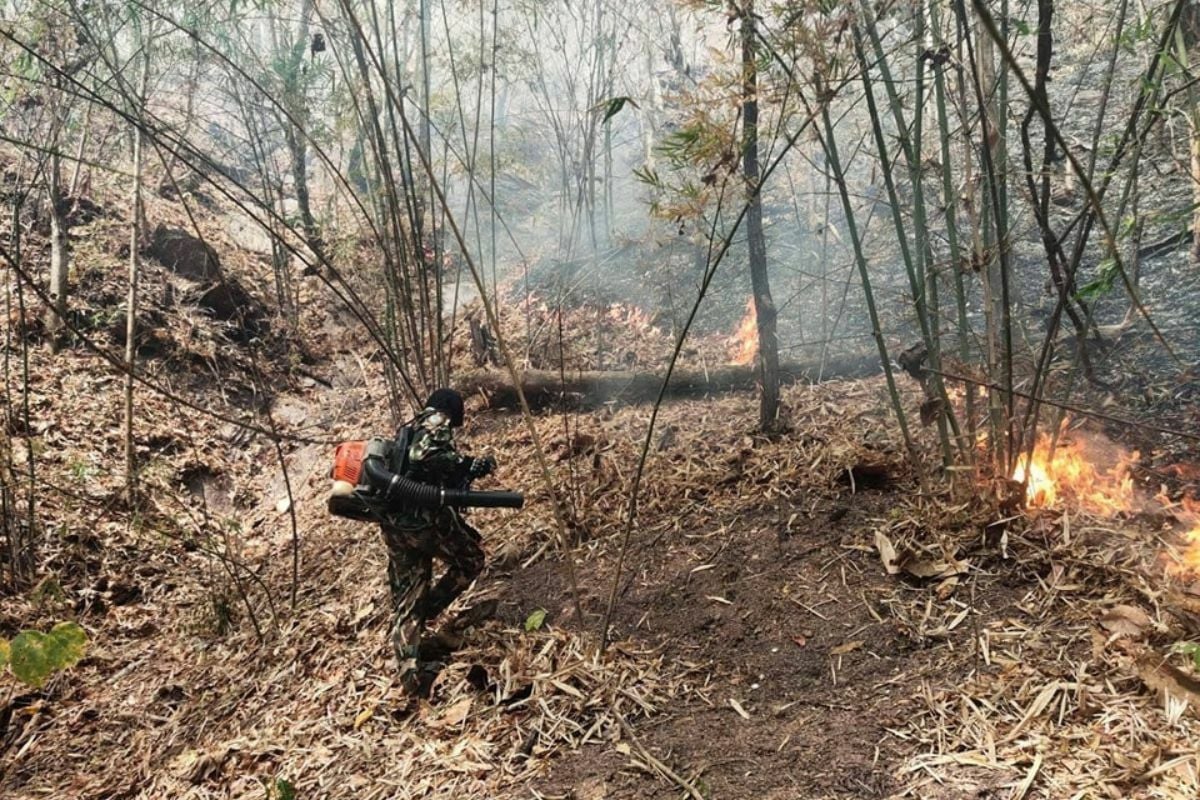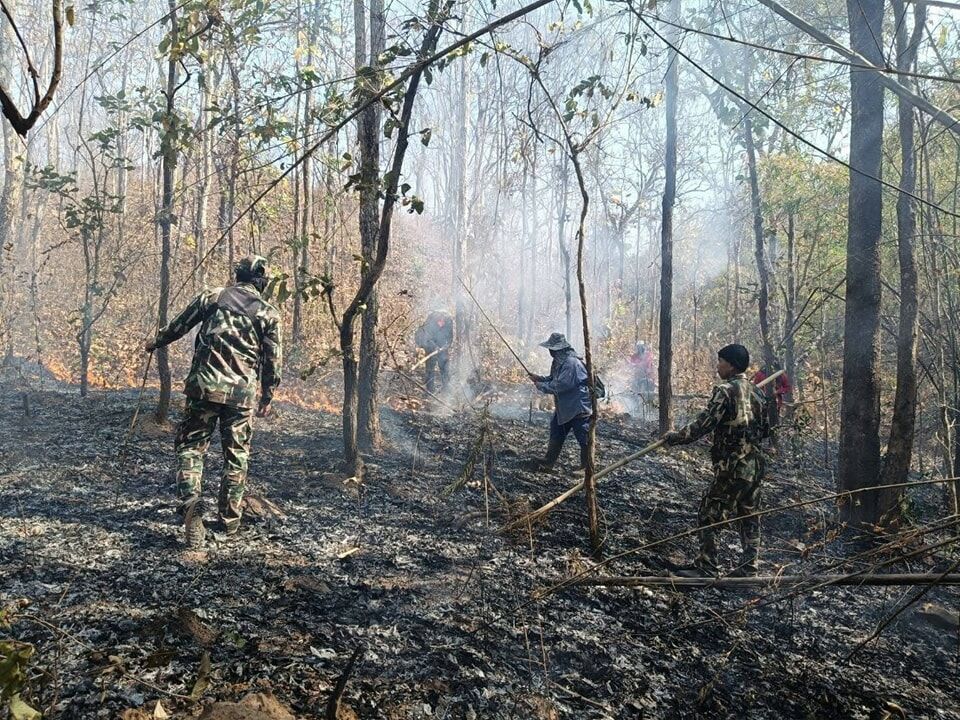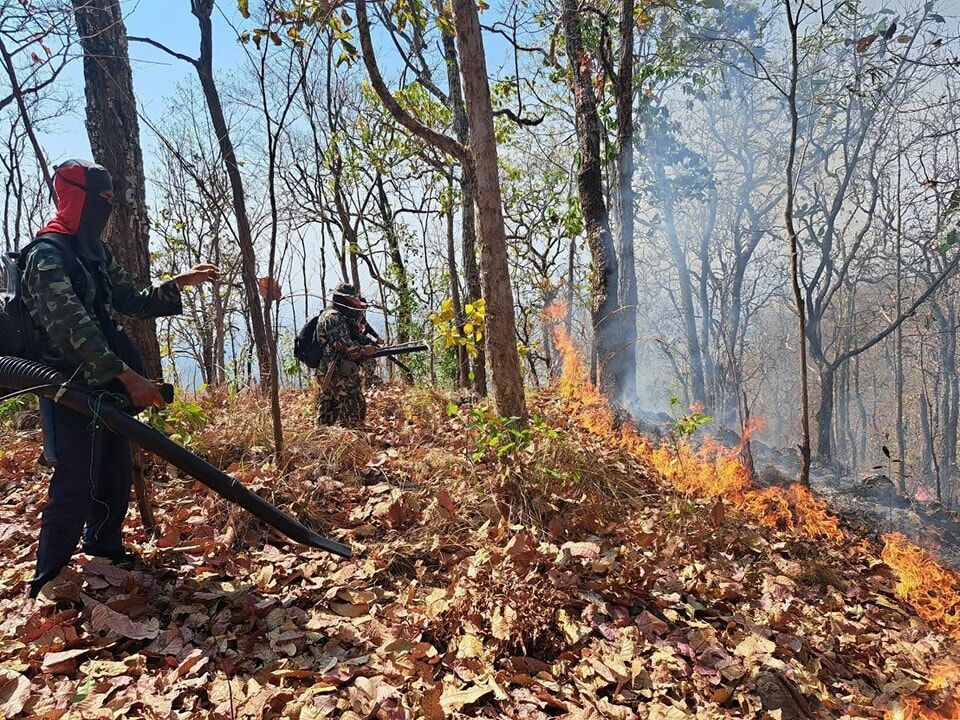Wildfires force indefinite closure of North Thailand park

Doi Phu Nang National Park in Phayao province has been closed indefinitely following a troubling rise in wildfires, the Department of National Parks, Wildlife and Plant Conservation (DNP) announced yesterday, March 25.
The park, known for its lush mountain ranges and diverse wildlife, will remain off-limits to both tourists and locals as authorities work to address the ongoing fire risks.
“The closure is essential to allow nature to recover and prevent further fires,” said Atthaphon Charoenchansa, Director-General of the DNP.
The decision comes after 557 hotspots were detected in the park between October 1 and March 25, marking a 38.9% increase from the same period last year, when 401 hotspots were recorded.
Atthaphon attributed the fires to villagers setting blazes to the trees, often for illegal hunting or to harvest wild mushrooms. In response to the rising threat, the DNP has mobilised 97 park rangers and 180 fire prevention volunteers to patrol the area.
“During this closure, no tourists or villagers will be allowed to enter.”

The DNP has issued a stern warning to those attempting to trespass or start fires. Under the National Park Act, offenders face up to 20 years in prison and fines of up to 2 million baht.
In addition, perpetrators could be subject to civil lawsuits with fines based on the value of the forest resources destroyed, potentially reaching 120,000 baht per rai.
Since October, the DNP has already taken legal action against 21 people suspected of igniting fires in national forests, resulting in damage across over 2,772 rai.
The park, which spans 740 square kilometres across Dok Khamtai, Pong, and Chiang Mueang districts, is home to a rich variety of wildlife, including soft-shelled turtles, monitor lizards, and peacocks.
The decision to close the park indefinitely highlights the ongoing struggle to balance conservation efforts with the pressures faced by Thailand’s national parks. The DNP hopes the closure will help prevent further destruction and allow the park’s delicate ecosystem a chance to recover, reported The Nation.

Latest Thailand News
Follow The Thaiger on Google News:


























